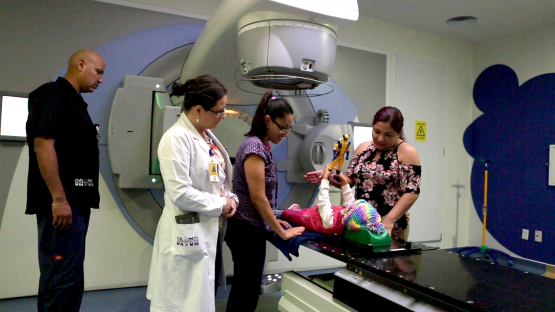The IAEA joined national governments, UN Agencies and partners in a virtual meeting to mark International Childhood Cancer Day hosted by the World Health Organization (WHO) on 15 February. Under the theme ‘All Hands In to Accelerate CureAll Implementation’ the IAEA presented its work in supporting countries in improving outcomes for children with cancer.
Cancer is a leading cause of death for children around the world. More than 400 000 children are diagnosed with the disease globally each year. The majority live in low and middle income countries (LIMCs), and have only a 20 to 30 per cent chance of survival, versus 80% in the developed world. Survival rates in LMICs are low due to delayed diagnosis, inaccessible or uncompleted treatment, or because cancer is combined with an existing condition such as malnutrition.
Radiotherapy can improve the survival of children with nine common cancers. Patients in least developed countries can only reach 37 per cent of the world’s services despite having an estimated 85 per cent of cases by 2050.





